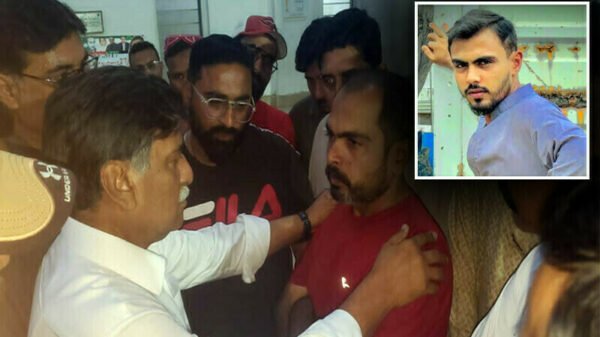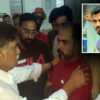Pakistan Tehreek-e-Insaf (PTI) has decided to abstain from attending the National Security Committee (NSC) meeting scheduled for today, citing the party’s exclusion from critical discussions as a key concern. PTI leadership, including senior figures Salman Akram Raja and Omar Ayub, has made their participation contingent on being granted the opportunity to meet party founder Imran Khan, who remains in detention.
However, Khyber Pakhtunkhwa (KP) Chief Minister Ali Amin Gandapur will attend the high-level meeting.
Raja: Discussion Without PTI Is Futile
In a press conference held in Islamabad, PTI leader Salman Akram Raja stressed that any conversation on national security without PTI’s involvement would be ineffective. “Any discussion without PTI is futile. We represent a significant portion of the country’s political landscape, and excluding us from essential decisions undermines the democratic process,” he stated.
Raja also highlighted concerns that today’s meeting might address potential military operations in Afghanistan. “We have learned that a decision could be made regarding military action in a brotherly Islamic country. PTI will not support any such move. Pakistan must prioritize diplomatic engagement and regional stability over unilateral actions,” he asserted.
Omar Ayub: Terrorism Cannot Be Tackled Through Isolated Decisions
Echoing Raja’s sentiment, Omar Ayub voiced reservations about the meeting, emphasizing the importance of inclusive political dialogue in addressing security challenges. “Terrorism cannot be eradicated through isolated decisions taken behind closed doors. We believe that the solution lies in a comprehensive national dialogue, not through military intervention,” Ayub stated.
KP CM Gandapur to Attend
Despite the broader PTI boycott, KP Chief Minister Ali Amin Gandapur will attend the session, citing his role as the provincial chief executive as the reason for his participation. “As the representative of Khyber Pakhtunkhwa, which has been directly affected by terrorism, it is my duty to be part of the discussions on the national security strategy,” Gandapur remarked.
The session, convened by National Assembly Speaker Sardar Ayaz Sadiq at the direction of Prime Minister Shehbaz Sharif, will provide a detailed briefing on the security situation, particularly in Balochistan and KP. The military leadership, including Chief of Army Staff (COAS) General Syed Asim Munir, is expected to update lawmakers on recent terrorist incidents and discuss potential countermeasures.
Plans for Large-Scale Operation Against Militants in Balochistan
Government sources indicate that the administration is considering a large-scale operation against banned militant groups operating in Balochistan. A high-ranking official, who spoke on the condition of anonymity, revealed that discussions would also cover measures to combat the rising number of attacks in the region.
PTI Calls for Jirga to Address Security Challenges
Amid their decision to boycott the NSC meeting, PTI leaders have reiterated their call for a jirga (tribal assembly) to address Pakistan’s security issues. “Traditional conflict-resolution mechanisms have historically played an essential role in our society. A jirga could facilitate dialogue and pave the way for a more sustainable peace,” suggested Salman Akram Raja.
As the political landscape remains tense, PTI’s decision to opt out of the NSC meeting underscores the party’s deep dissatisfaction with the exclusion from key security discussions and its call for a more inclusive, transparent approach to tackling Pakistan’s growing security concerns.










